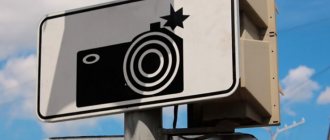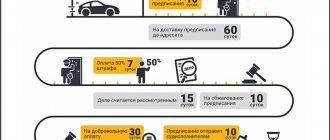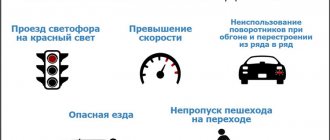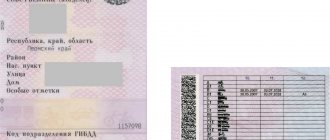Validity period of traffic police fines
Many drivers are interested in the question of whether traffic police fines expire, since over time they may become the basis for a ban on crossing the state border or be expressed in the form of other consequences. This happens after two years, but few people can withstand such a period of limitation, so it is recommended not to delay and pay incoming receipts on time. Algorithm for calculating the period:
- According to the provisions of the Administrative Code, the period begins to be calculated from the moment the resolution enters into legal force. This happens 10 days after it is issued, since at this time the opportunity to appeal it is lost.
- In the case of a letter where there is photo or video recording of the violation, the period for appeal begins at the moment of receipt of the notification. Except when a person evades its delivery.
- The statute of limitations for a fine begins two months after the appeal period expires. For example, Petrov V.V. received a citation for illegal parking on October 5, 2021. He could express his disagreement within 10 days, that is, until the 15th. After two years, namely on October 15, 2021, the unfulfilled fine will be canceled.
- Problems begin 80 days after the document is drawn up. This period is not random and includes 10 days for an appeal, 60 days for payment, and 10 days for bailiffs to make a decision regarding the violator.
But one should not be deceived by such simplicity of calculation, and think that if traffic police fines expire after 2 years, then there is no need to pay them. Executive authorities have certain instruments of influence for the forced collection of debts. Therefore, deliberately brushing aside incoming receipts from the traffic police is not the best solution. Legal deadlines can only be increased if the citizen formalizes a deferment or installment payment plan. It is usually provided on the basis of an application for a period of 1 to 3 months.
How long does it take for traffic police fines to expire?
The statute of limitations for traffic police fines is exactly 2 years from the moment the decision to impose it comes into force (that is, after 10 days from the date of issuance, which are given to file a complaint). This norm is fixed in Article 31.9 of the Code of Administrative Offences.
However, due to some features of administrative proceedings, almost all traffic police fines are de facto indefinite. The explanation is as follows:
- Traffic police fines can be paid either voluntarily or forcibly.
- The voluntary method looks simple - a person transfers a sum of money to a special government account. Transfer methods can be different - it can be payment using a bank, using special electronic terminals, visiting a traffic police department, and so on.
- The compulsory method looks like this: the court or an authorized person submits a delinquency order to the bailiffs, and FSSP employees confiscate money or property to pay off the debt. However, forced collection is not considered the actual transfer of money or property in favor of the FSSP, but the very fact of transferring the decision to the bailiffs. At the same time, the statute of limitations in an administrative case does not apply to the FSSP, therefore such a debt is unlimited.
- Theoretically, a situation is possible in which FSSP employees do not receive a decision on late fines - in this case, after the expiration of the statute of limitations (2 years), the person will actually be released from punishment. However, in practice, the probability of such an event is almost zero (for example, a letter with a decree on delay was lost in the mail, and the judge forgot to resend the letter).
To consolidate the material, we will consider two main scenarios:
| Situation | Statute of limitations | The likelihood of such a scenario |
| FSSP employees received a court order | Absent | Very high |
| FSSP employees did not receive the court ruling (the letter was lost on the way, the judge forgot to send the ruling, and so on) | 2 years | Very low |
Installment and deferment
In some situations, the official or judge may additionally grant the offender an installment plan or deferment. Main cases:
More on the topic: Fine for dirty and unreadable license plates
| Type | Duration | Base | Basic situations |
| Installment plan | Up to 3 months | Article 31.5 of the Code of Administrative Offenses (part 2) | Installment plans are provided only in case of difficult financial situation of the violator. To receive benefits, a person must document his status. |
| Postponement | Up to 1 month | Article 31.5 of the Code of Administrative Offenses (part 1) | A deferment can only be granted if a person objectively cannot repay the debt on time (for example, the offender is under arrest or outside of Russia). |
What is “enforcement”
Despite the fact that after some time the traffic police fine is canceled, if it is not paid, the case is transferred to the Federal Executive Service. In this case, forced collection of funds is assumed. Proceedings begin at the end of the two months allotted by law. In general, the whole process is divided into two stages:
- Transfer of the resolution to the Federal Executive Service.
- Forced seizure and subsequent sale of property belonging to the defaulter.
There is no need to clarify how long it takes for traffic police fines to be written off if the debt was transferred to the FSSP for execution, since the period of 2 years does not apply to it. There is no statute of limitations at all for penalties that a person deliberately evades.
How else can you avoid paying fines?
You also need to remember some important points:
- You can challenge the traffic police fine within 10 days after receiving the notification. In this case, you will have to prove that you were wrongfully prosecuted. For example, if you were illegally fined for seriously speeding, in this case you can provide the court with technical documentation for the car, which will show that your car cannot accelerate to such speeds.
- If you pay the fine within 20 days of receiving the notification, then you will be given a 50% discount. However, please note that this benefit does not apply to all cases (for example, the discount does not apply to cases of driving under the influence of alcohol). The full list of preferential cases is listed in Article 32.2 of the Code of Administrative Offences.
In what cases will you still have to pay a fine?
There is no need to find out how long it takes for traffic police fines received after deprivation of rights to expire. This often happens when the driver was detained while intoxicated. The decision in this case is made by the court, and the certificate can be returned only after the debt has been fully repaid.
It is important to know! The statute of limitations also does not apply to fines that were overdue and transferred to the enforcement service. Bailiffs do not even have the concept of “nullification of debt” after a certain time.
Forced collection
If the 60-day period has expired, the FSSP may forcefully collect a fine. Bailiffs can make collections in various ways, but the following scheme is most often implemented:
- After receiving the resolution, the FSSP officer opens enforcement proceedings and sends a letter to the person at his place of residence demanding that he pay the fine within a certain period of time (usually 5-10 days).
- If the period has expired, the FSSP carries out forced confiscation of the property. Confiscation methods can be different - it can be writing off money from bank cards, confiscation of personal objects, withholding part of wages, and so on.
- Let us remind you that cases of forced collection are not subject to the statute of limitations for administrative offenses, and in the event of the death of the violator, the debt will pass to his legal heirs.
More on the topic: Fine for tinting in 2021
Responsibility for failure to meet deadlines
Once you find out how long it takes for unpaid traffic fines to expire, you should hurry to fulfill all your obligations. Otherwise, failure to meet deadlines will have unpleasant consequences. Any offense implies liability.
If a citizen has not contributed the money required by the fine to the regional budget, then a more serious punishment is expected:
- Double the original amount.
- Deprivation of rights if the amount of collection is more than 1000 rubles.
- Arrest for 15 days.
- Involvement in compulsory work for up to 120 hours.
- Commencement of enforcement proceedings with forced collection.
Before the fine is reset, the violator has a long way to go, which involves receiving many letters demanding repayment of the debt. Bailiffs also use other methods of forced collection permitted by law, for example, confiscation of valuables for the required amount.
Even if you find out after what time traffic police fines are cancelled, you should not avoid the obligation to timely contribute funds to the regional budget. It is almost impossible to last 2 years without being brought to more serious liability. Therefore, to save money, it is most profitable to deposit money in the first 20 days after receiving the receipt - in this case, a discount of 50% is offered.
How long does it take to voluntarily repay the debt?
After the decision on an administrative offense comes into force, the driver has exactly 60 days to pay the fine. Moreover, if a citizen does not pay the debt within the specified period, his case is transferred to the Federal Bailiff Service (FSSP) for forced collection.
Please note that after the expiration of the 60-day period, the court or official may additionally hold the violator accountable for evasion under Article 20.25 of the Code of Administrative Offenses. Methods of punishment are the imposition of a double fine, arrest (for 15 days) or forced labor (up to 50 hours). The imposition of a fine occurs in the standard way - a resolution is handed to the violator, the person is given 10 days to appeal, in case of non-payment, the case is transferred to the FSSP, and so on. The initial fine is also payable.
More on the topic: Fine for not having a “Spikes” sign
Checking for fines will not take more than 5 minutes
That is why it is worth regularly checking all possible administrative fines on the traffic police website in the appropriate section; this can save you from unnecessary troubles, financial costs and nerves.
And considering that from the beginning of 2021 the fine can be paid with a 50% discount within 20 days from the date of receipt of the notification, there are even fewer problems.
Do not be afraid that if you are late in payment, you will not be allowed to go abroad. Neither customs, nor the police, nor the traffic police have the right to detain you unless a corresponding court order has been issued.
Well, for those who cannot or do not want to pay a fine due to personal circumstances, you must remember that the statute of limitations for traffic police fines is 2 years and 10 days from the date of issuing the decision to you.
How are fines issued?
According to Article 31.9 of the Code of Administrative Offenses, if more than twenty-four months have passed since the traffic police fine was issued/a traffic violation was recorded, the need for its repayment “disappears” by itself and no one has the right to demand its payment. In this article we will look at the procedure for paying off traffic police fines.
Today, a driver who has violated traffic rules can receive notice of a fine in two ways:
- Personally from a traffic police officer;
This form of notification of a fine is possible when the driver violated one of the traffic rules right “under the nose” of the road inspectors. In this case, he will be stopped immediately and a report will be drawn up on the spot.
- By mail notification;
This form of notification is possible in cases where the driver’s traffic violation was recorded by photo and video cameras. After recording a violation, a photograph with the license plates of the offending car is sent to the State Traffic Inspectorate, after which, within seven to ten days, a “letter of happiness” is sent to the specified permanent registration address of the car owner.










